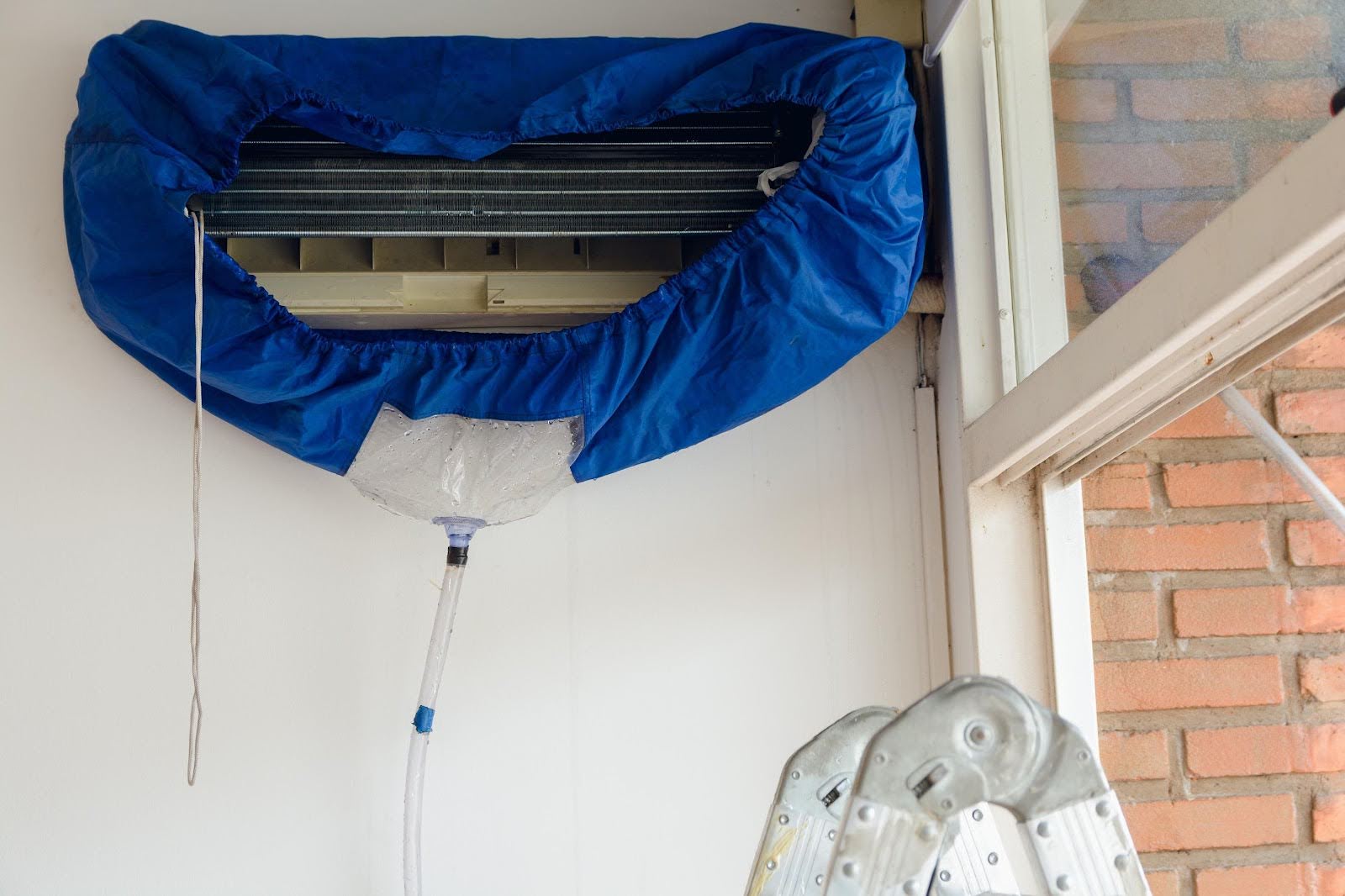No products in the cart.
Daniel Goleman’s “Focus: The Hidden Driver of Excellence” underscores the centrality of attention—both at the personal and organizational levels—in achieving peak performance. In the HVAC industry, where technical precision, safety, and quality customer service are paramount, the principles of cultivating and directing attention can lead to improved outcomes. By honing various forms of focus—inner focus (self-awareness and self-management), other focus (empathy, team dynamics, and customer relations), and outer focus (understanding the broader industry landscape and environmental factors)—HVAC professionals and organizations can enhance performance, innovation, and overall success.
Below are practical applications guided by Goleman’s framework, tailored for HVAC professionals, project managers, service technicians, engineers, sales teams, and leadership.
1. Inner Focus: Self-Awareness and Personal Mastery
Key Concept: Inner focus involves recognizing one’s own mental state, emotions, and thought processes. For HVAC technicians and engineers, this means developing the mental discipline to remain calm, attentive, and methodical under pressure—such as during complex installations, diagnosing tricky mechanical issues, or addressing emergency calls.
Practical Applications:
• Mindful Preparation Before Service Calls:
Before approaching a new job, technicians can take a brief moment to center themselves. A short breathing exercise or mental run-through of the task at hand can clear the mind, reduce anxiety, and improve attention to detail.
• Regular Reflection and Skills Assessment
Encourage technicians to keep a work journal or use a digital note-taking tool to record daily challenges, successes, and areas needing improvement. By periodically reviewing these notes, they cultivate insight into their own learning patterns and technical proficiency.
• Personal Stress Management Techniques:
The HVAC industry can be high-pressure—tight schedules, unexpected repairs, extreme weather conditions. Incorporate short mental breaks and stress-reduction techniques (e.g., stretching, brief walks, quick meditation) into the workday to maintain composure and mental agility.
2. Other Focus: Empathy and Team Synergy
Key Concept: Other focus is about tuning into the people around you—colleagues, clients, and even vendors. In the HVAC field, harmonious team dynamics and strong customer relations are critical. Understanding the customer’s perspective can guide better service outcomes, and empathizing with team members fosters trust and efficiency.
Practical Applications:
• Customer-Focused Communication:
During service calls, technicians should ask clarifying questions, listen actively to customer concerns, and explain technical issues in plain language. This demonstrates empathy and respects the client’s need for clarity, often leading to higher customer satisfaction and positive word-of-mouth.
• Team Huddles and Debriefs:
Hold quick morning meetings where team members discuss the day’s tasks and potential challenges. After projects, conduct debriefs to reflect on what went smoothly and what could be improved. This shared attention enhances group learning, aligns expectations, and fosters a supportive team atmosphere.
• Mentoring and Peer Review:
Pair more experienced technicians with newer ones for ongoing mentorship. Regular, constructive feedback sessions help younger team members focus on developing the skills and mindset needed, while experienced professionals refine their communication and leadership abilities.
3. Outer Focus: Systems Thinking and Industry Awareness
Key Concept: Outer focus directs attention to the larger environment—market trends, emerging technologies, environmental considerations, and regulatory standards. In the HVAC industry, staying attuned to changing energy efficiency requirements, advances in smart HVAC technology, and evolving customer preferences is critical for long-term success.
Practical Applications:
• Ongoing Professional Development:
Encourage continual learning about the latest HVAC tools, eco-friendly refrigerants, and smart home integration systems. Subscribe to trade publications, attend industry seminars, and participate in webinars to stay updated on cutting-edge solutions.
• Data-Driven Decision-Making:
Implement data collection and analytics tools to track system performance, customer feedback, and equipment reliability. By focusing attention on quantitative metrics (e.g., energy consumption data, maintenance frequency, indoor air quality readings), managers can identify patterns and anticipate problems before they occur.
• Environmental Stewardship and Compliance:
Keep a close eye on regulatory changes related to emissions standards, energy codes, and environmental regulations. Proactively adjusting services to meet these standards not only ensures compliance but also aligns the organization with sustainability goals— enhancing reputation and market appeal.
4. Leadership Focus: Creating a Culture of Attention
Key Concept: Leadership can shape how attention is distributed and valued within an organization. In HVAC firms, leaders who model focus—staying calm in crises, setting clear priorities, and encouraging thoughtful deliberation—create a culture that naturally drives excellence.
Practical Applications:
• Clear Goals and Priorities:
Regularly communicate organizational objectives, financial targets, quality benchmarks, and customer satisfaction goals. By providing a focused roadmap, leadership helps. technicians, engineers, and sales teams concentrate their efforts on the most meaningful tasks.
• Establishing Quality over Speed:
In a competitive environment, there’s often pressure to move quickly. Leaders can emphasize that attentive, careful work leads to fewer callbacks, safer installations, and better customer retention. Reinforcing the value of accuracy and thoroughness can help realign individual and team focus toward long-term excellence rather than short-term speed.
• Training in Soft Skills and Emotional Intelligence:
Offer workshops on emotional intelligence, conflict resolution, and customer service techniques. When leaders invest in developing their people’s relational skills, they ensure that not only technical but also interpersonal aspects of the work benefit from mindful attention.
5. Institutionalizing Focus: Processes and Systems
Key Concept: Embedding focus into daily routines and institutional processes ensures that the attentional discipline outlasts any single training session or initiative. This means designing workflows, checklists, and protocols that naturally guide the attention of HVAC professionals where it’s needed.
Practical Applications:
• Standardized Checklists and Protocols:
Create step-by-step installation and maintenance procedures. These checklists channel attention to each critical detail—reducing the likelihood of errors or oversight and making it easier for technicians to remain fully present in the task.
• Digital Tools for Task Management:
Use HVAC industry-specific software to schedule jobs, track inventory, and log equipment maintenance records. By removing guesswork and mental clutter, technicians can dedicate their focus to diagnosing and solving the actual HVAC issues.
• Regular Performance Metrics Review:
Periodically review operational metrics (response times, installation quality scores, customer satisfaction ratings) and hold focused improvement sessions. This channels organizational attention toward continuous refinement and encourages problem-solving teams to concentrate on the root causes of issues rather than superficial fixes.
In “Focus: The Hidden Driver of Excellence,” Daniel Goleman argues that the quality of our attention often determines the quality of our outcomes. For HVAC professionals, the strategic deployment of focus can transform every facet of the work—from technical problem-solving and safety adherence to customer relations, team collaboration, and long-term strategic planning. By combining inner, other, and outer focus and embedding these principles into routines, training, communication, and leadership, HVAC companies can elevate their performance, adaptability, and industry reputation, ultimately achieving excellence guided by mindful and deliberate attention.





